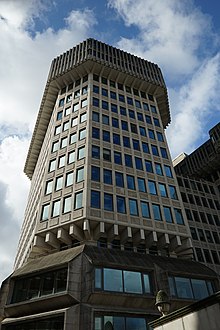Our website is made possible by displaying online advertisements to our visitors.
Please consider supporting us by disabling your ad blocker.
Government Legal Department
 | |
 | |
| Non-ministerial government department overview | |
|---|---|
| Formed | 1876 |
| Jurisdiction | United Kingdom |
| Headquarters | 102 Petty France, London, SW1H 9GL |
| Employees | 3,400 (2023/24)[1] |
| Annual budget | £114.7 million (2009-2010) [2] |
| Ministers responsible | |
| Non-ministerial government department executive |
|
| Website | gov |
| Treasury Solicitor Act 1876 | |
|---|---|
| Act of Parliament | |
 | |
| Long title | An Act to incorporate the Solicitor for the affairs of Her Majesty's Treasury, and make further provision respecting the grant of administration of the Estates of deceased persons for the use of Her Majesty. |
| Citation | 39 & 40 Vict. c. 18 |
| Dates | |
| Royal assent | 27 June 1876 |
| Other legislation | |
| Amended by | Statute Law Revision Act 1883 |
| Text of statute as originally enacted | |
The Government Legal Department (previously called the Treasury Solicitor's Department) is the largest in-house legal organisation in the United Kingdom's Government Legal Profession.
The department is headed by the Treasury Solicitor (formally, 'The Solicitor for the affairs of His Majesty's Treasury'). This office goes back several centuries. The office was enshrined in law by the Treasury Solicitor Act 1876 (39 & 40 Vict. c. 18), which established the Treasury Solicitor as a corporation sole (an office with perpetual succession).[4] Employees of the department exercise legal powers which are vested in the corporation sole.
The department is a non-ministerial government department and executive agency.[5] The Treasury Solicitor reports to the Attorney General for England and Wales. The department employs more than 1,900 solicitors and barristers to provide advice and legal representation on a huge range of issues to many government departments.
- ^ "Government Legal Department: Annual Report and Accounts 2023-24". UK Government.
- ^ HM Procurator General and Treasury Solicitor Resource Accounts 2009-2010 (PDF), HM Procurator General and Treasury Solicitor, 30 June 2010, archived from the original (PDF) on 26 July 2011, retrieved 19 December 2010
- ^ "Susanna McGibbon appointed as Treasury Solicitor, HM Procurator General and Permanent Secretary, Government Legal Department" (Press release). GOV.UK. February 2021. Retrieved 9 March 2021.
- ^ "Our history". Treasury Solicitor's Department. 2013. Archived from the original on 29 October 2013. Retrieved 17 September 2013.
- ^ "Treasury Solicitor's Department". GOV.UK. 2013. Retrieved 17 September 2013.
Previous Page Next Page


